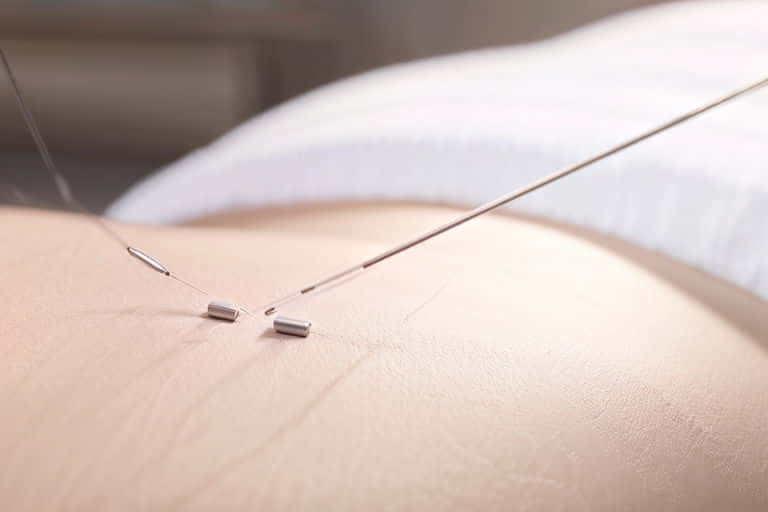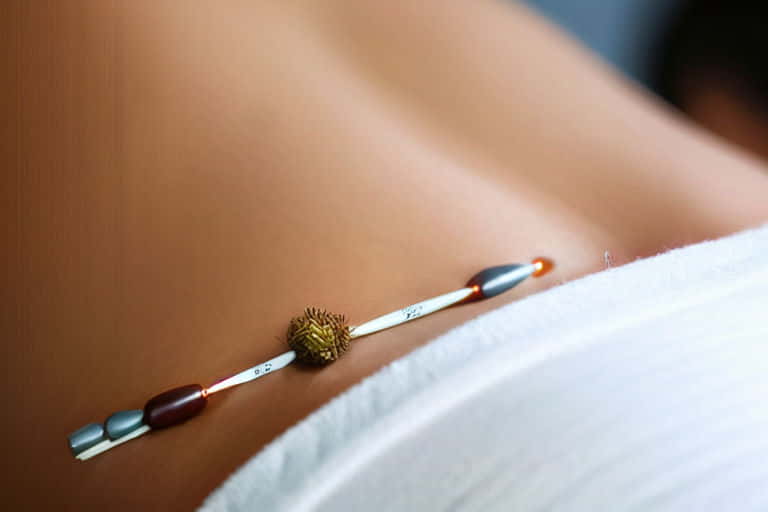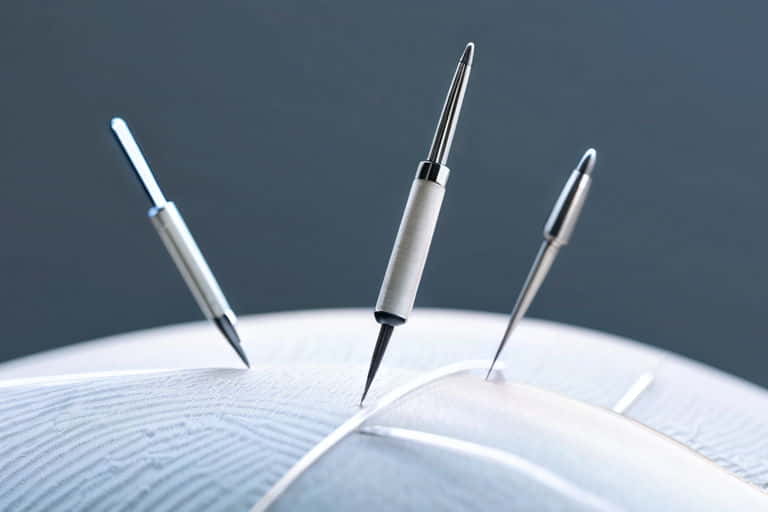Anxiety can feel like a never-ending storm cloud hovering over your head. It’s a pervasive issue that affects millions worldwide, causing symptoms like restlessness, rapid heartbeat, and an overwhelming sense of dread. People often prescribe traditional treatments like medication and therapy, but an increasing number are turning to Acupuncture as a natural and holistic remedy. But does it work? Let’s delve into the world of Acupuncture and see if it’s worth a try for your anxiety.

Understanding Anxiety
What is anxiety?
Anxiety is more than just occasional worry or fear. It’s a chronic condition that can significantly impair daily functioning. Whether it’s generalized anxiety disorder (GAD), panic disorder, or social anxiety, the symptoms can range from mild to debilitating.
Common Symptoms
- Persistent worry
- Fatigue
- Difficulty concentrating
- Irritability
- Muscle tension
- Sleep disturbances
Traditional treatment methods
Medication (such as antidepressants or anti-anxiety drugs) and psychotherapy (like cognitive-behavioral therapy) typically combine to treat anxiety. While these methods can be effective, they often have side effects and may not work for everyone.
What is Acupuncture?
Origins and History
Acupuncture, an ancient healing practice, originated in China over 2,000 years ago. It involves inserting thin needles into specific points on the body to balance the flow of energy, or “Qi” (pronounced “chee”).
How Acupuncture works
According to traditional Chinese medicine, energy pathways, known as meridians, run through the body. Illness can arise when these pathways become blocked or out of balance. Acupuncture aims to restore balance by stimulating specific points along these meridians.

Types of Acupuncture
- Traditional Chinese Acupuncture
- Japanese Acupuncture
- Korean Acupuncture
- Auricular Acupuncture
Acupuncture and Anxiety: The Connection
How Acupuncture can help with anxiety
Acupuncture is believed to affect the body’s autonomic nervous system, helping to reduce stress and anxiety. It can help alleviate anxiety symptoms by promoting relaxation and regulating the body’s stress response; it can ease the symptoms of anxiety.
Scientific Studies and Evidence
Several studies have shown that Acupuncture can be an effective treatment for anxiety. Research published in the Journal of Acupuncture and Meridian Studies found that Acupuncture significantly reduced anxiety in participants. Another study in the Journal of Alternative and Complementary Medicine reported similar findings.
Personal Testimonials
Many individuals have shared their positive experiences with Acupuncture for anxiety. Personal stories often highlight a reduction in symptoms and an improvement in overall well-being after regular acupuncture sessions.
Benefits of Acupuncture for Anxiety
Natural and holistic approaches
Unlike medications, which can have numerous side effects, Acupuncture offers a natural approach to managing anxiety. It works with the body’s healing mechanisms without introducing foreign substances.
A Few Side Effects
When performed by a trained practitioner, Acupuncture is generally safe and has few side effects. Common minor side effects include slight bruising or soreness at the needle insertion points.
Improvement in Overall Well-Being
Beyond anxiety relief, Acupuncture can enhance overall well-being. Many patients report better sleep, an improved mood, and increased energy levels.
How Acupuncture Sessions Work
What to Expect During a Session
An acupuncture session typically begins with a consultation, during which the practitioner assesses your health and anxiety levels. During the treatment, the practitioner inserts fine needles into specific points on your body while you lie on a comfortable table. Usually, you leave the needles in place for about 20–30 minutes.
Frequency and duration of treatment
The frequency and duration of acupuncture treatment can vary. Some may benefit from weekly sessions, while others might need more frequent visits initially. Individuals often customize their treatment plans to meet their specific needs.
Cost Considerations
The cost of Acupuncture can vary depending on location and practitioner expertise. It’s worth checking if your health insurance covers acupuncture treatments, as some plans do.
Choosing an Acupuncturist
Credentials to Look For
A reputable organization, such as the National Certification Commission for Acupuncture and Oriental Medicine (NCCAOM), should license and certify your acupuncturist.
Questions to ask
- What is your experience with treating anxiety?
- How many sessions do you recommend?
- Do you have any patient testimonials or success stories?
Finding a reputable practitioner
Ask for recommendations from friends, family, or healthcare providers. Online reviews and professional directories can also help you find a qualified acupuncturist.
Acupuncture vs. other anxiety treatments
Comparison with Medication
Medications can be effective but often come with side effects like drowsiness, weight gain, or dependence. Acupuncture offers a drug-free alternative with minimal side effects.
Comparison with Therapy
Therapy can be highly effective for treating anxiety, but it requires a significant time commitment. Acupuncture can be a quicker complement or alternative to treatment for those seeking immediate relief.
Integrative Approaches
Many find the best results by combining Acupuncture with other treatments like medication, therapy, and lifestyle changes. This integrative approach can address anxiety from multiple angles.
Potential risks and considerations
Possible side effects.
Though rare, some people may experience minor side effects such as dizziness, fatigue, or mild bruising at the needle sites.
Who should avoid Acupuncture?
People with certain health conditions, such as bleeding disorders or those taking blood thinners, should consult their doctor before trying
the needles.
Pre-Session Tips
- Avoid heavy meals and caffeine before your session.
- Stay hydrated.
- Arrive a few minutes early to relax and complete any necessary paperwork.
What to do after the session
- Take it easy for the rest of the day.
- Drink plenty of water.
- Pay attention to how you feel, as well as any changes in your anxiety levels.
Real-Life Success Stories
Case Studies
John, a 34-year-old marketing executive, suffered from severe anxiety that disrupted his work and personal life. After six weeks of Acupuncture, John reported a significant decrease in his anxiety levels and better sleep quality.
We conducted interviews with individuals who benefited from Acupuncture.
“I was skeptical at first, but after just a few sessions, I felt calmer and more balanced,” says Lisa, a 29-year-old teacher. “It’s been a game-changer for my anxiety.”
Debunking Common Myths About Acupuncture
Myth: It’s Just a Placebo
While the placebo effect can influence any treatment, numerous studies have shown that Acupuncture has physiological effects beyond just placebo.
Myth: It’s painful.
Because acupuncture needles are skinny, most people experience little to no pain during insertion. Many find the process relaxing.
Myth: It’s not scientifically proven
There is a growing body of scientific evidence supporting the effectiveness of Acupuncture for various conditions, including anxiety.
Combining Acupuncture with Other Anxiety Treatments
How to Integrate with Medication
Discuss with your healthcare provider how to incorporate Acupuncture into your treatment plan. They can help adjust your medication as needed.
Complementary Therapies
Acupuncture works well alongside other complementary therapies, such as yoga, meditation, and massage therapy. These holistic approaches can enhance overall treatment effectiveness.
Lifestyle Changes
Combining Acupuncture with healthy lifestyle changes, such as a balanced diet and regular exercise, can further help manage anxiety.
DIY Acupressure for Anxiety Relief
Basic Techniques
Acupressure entails applying pressure to the same points as Acupuncture. You can perform acupressure on yourself to help alleviate anxiety symptoms.
Points to target
- Yintang: This point between the eyebrows can help calm the mind.
- Shen Men, located on the ear, are known for their stress-relieving properties.
- Pericardium 6 (Neiguan): Located on the inner forearm, this point can help reduce anxiety and nausea.
The benefits of acupressure
You can use acupressure anywhere, anytime, as a convenient, non-invasive method to manage anxiety.
Conclusion
Acupuncture offers a promising, natural approach to managing anxiety. Its holistic benefits, minimal side effects, and growing body of supportive evidence make it a viable option worth considering. While it may not be a cure-all, integrating Acupuncture with traditional treatments and lifestyle changes can provide a comprehensive strategy for dealing with anxiety.
FAQs
Can acupuncture completely cure anxiety?
Acupuncture can significantly reduce anxiety symptoms, but it may not completely cure the condition. It is often most effective as part of a broader treatment plan.
How quickly can I expect results from Acupuncture?
Some people notice improvements after the first session, while others may require several weeks of treatment to see significant changes. Consistency is key.
Are there any specific acupuncture points for anxiety?
Yes, common points include Yintang (between the eyebrows), Shen Men (on the ear), and Pericardium 6 (on the inner forearm).
Does insurance cover Acupuncture for anxiety treatment?
Coverage varies by insurance provider and plan. Verify if your insurance company includes Acupuncture in your benefits.
What should I do if I’m afraid of needles?
If you’re afraid of needles, talk to your acupuncturist about your concerns. They can explain the process and help ease your anxiety. Additionally, acupressure offers a needle-free alternative.

